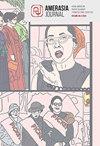冈田的《禁忌男孩》中的跨太平洋法西斯主义
IF 0.4
4区 社会学
0 HUMANITIES, MULTIDISCIPLINARY
引用次数: 0
摘要
摘要本文敦促我们重新审视冈田的《No No Boy》,它是一部跨太平洋的文本,讲述了日裔美国人与法西斯主义纠缠的被抹去的历史,特别是将小说与日本作家Tosaka Jun、Uno Kōzō;和三岛由纪夫联系起来。法西斯主义的美学概念并没有将《No No Boy》归类为法西斯或反法西斯文本,而是表明这种区别是如何被冷战地缘政治越来越模糊的。在试图批判法西斯主义的过程中,《No No Boy》发现自己动员了有能力和自由主义的话语,讽刺的是,驱逐法西斯主义者作为国家机构中一个不健康和离经叛道的元素,恢复了一个理想化和军国主义的民族国家。本文章由计算机程序翻译,如有差异,请以英文原文为准。
Transpacific Fascism in John Okada’s No-No Boy
ABSTRACT This essay urges a reconsideration of John Okada’s No-No Boy as a transpacific text which engages with the erased history of Japanese America’s entanglements with fascism, particularly by situating the novel in relation to Japanese writers such as Tosaka Jun, Uno Kōzō, and Mishima Yukio. Rather than classifying No-No Boy as a fascist or anti-fascist text, an aesthetic conception of fascism demonstrates how this distinction is increasingly obscured by Cold War geopolitics. In its attempt to critique fascism, No-No Boy finds itself mobilizing ableist and liberal discourses for which the expulsion of the fascist as an unhealthy and deviant element of the national body ironically restores an idealized and militaristic nation-state.
求助全文
通过发布文献求助,成功后即可免费获取论文全文。
去求助
来源期刊

AMERASIA JOURNAL
HUMANITIES, MULTIDISCIPLINARY-
CiteScore
0.40
自引率
0.00%
发文量
19
期刊介绍:
Since 1971, the Press has published Amerasia Journal, the leading interdisciplinary journal in Asian American Studies. After more than three decades and over 16,000 pages, Amerasia Journal has played an indispensable role in establishing Asian American Studies as a viable and relevant field of scholarship, teaching, community service, and public discourse.
 求助内容:
求助内容: 应助结果提醒方式:
应助结果提醒方式:


